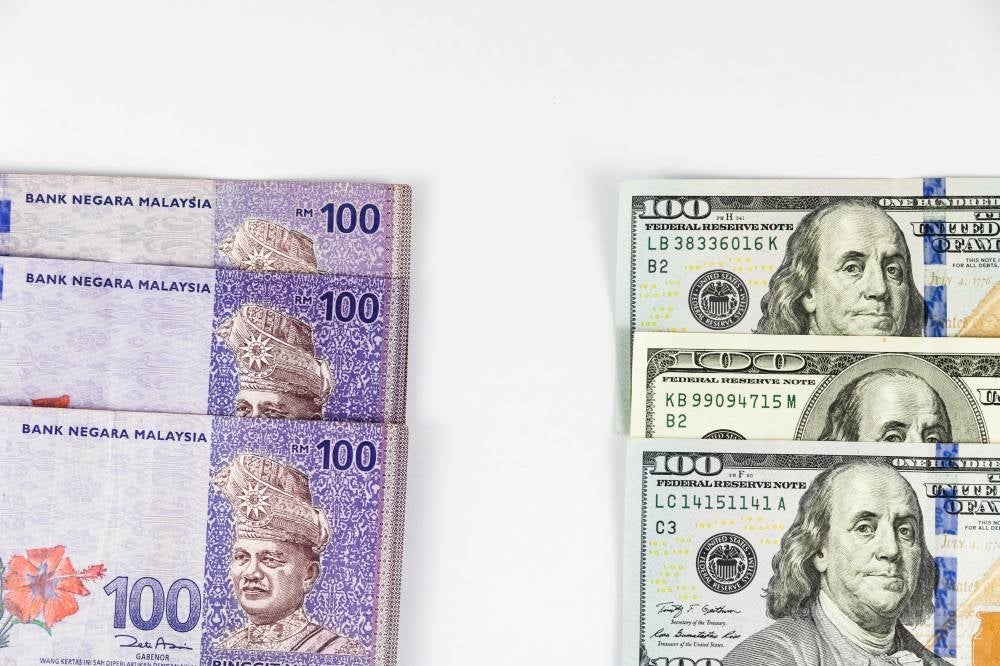Economist urges govt to have long term exchange rate

SHAH ALAM - The government should have a long term currency or exchange rate to combat devaluing of ringgit against the greenback, says economist.
Universiti Malaysia Sabah (UMS) Financial Economics senior lecturer Ribed Viannece said the factor which impacted the ringgit was Europe's energy issue as a result of the Ukraine War.
"The ringgit fell against the US dollar today as global economic uncertainties increased.
"Not only ringgit is facing pressure, but the currencies of developed countries are also affected. During these uncertain times, demand for safe haven currency, specifically the US dollar, would increase since the currency is regarded as stable," she told Sinar Daily.
Viannece said the US dollar was unlikely to increase further and was now “overvalued’”.
"The US dollar is now overvalued unless there are substantial global events that prompt safe-haven flows into it, such as a severe deterioration of the Russia-Ukraine situation or an increase of China-US tensions over Taiwan," she said.
When asked on how deep was the impact on inflation was, Viannece said rising inflation was expected to reduce Malaysians’ purchasing power, as retailers were confronted with a double-edged sword from global supply disruptions and rising commodity costs.
"The depreciation reduces the value of a Malaysian ringgit in comparison to the US dollar.
“Depreciation discourages imports because imported items become more costly as the value of the currency falls.
“Inflation occurs as products become increasingly expensive.
"High-income earners may be unaffected since their income can absorb the impact. However, it will have a significant impact on the purchasing power of low-income groups,” she said.
However, she said a way to combat such situation was for the government to increase interest rates in order to attract "hot money flows".
"Hot money flows occur when banks and financial organisations transfer funds to other nations in order to benefit from a higher rate of return on savings.
"Higher interest rates, on the other hand, may have an unintended consequence on economic growth.
"In addition, significant net foreign capital inflows (export receipts, FDI, foreign aid) must exceed capital outflows to prevent further depreciation of the ringgit.
"This will enhance foreign currency supplies and send a good signal to the market, lowering speculation," she said.
It was reported that the Malaysian ringgit has continued to slide against the US dollar, passing the RM4.50 mark recently and this was the first time the 4.50 level was breached since January 2018.
Universiti Tun Abdul Razak (Unirazak) Economist Professor Dr Barjoyai Bardai said imported goods will most likely be drastically affected where the price of goods will eventually spike up.
"We have imported more than 80 per cent of our requirement locally, including the component of the input of our industry.
"Food items will be affected but our exporter will be having a good time because they will be receiving more ringgit when they sell their products.
"Therefore, to avoid such situations, we have to cut down on imported items where we try not to consume imported foods," he said.











